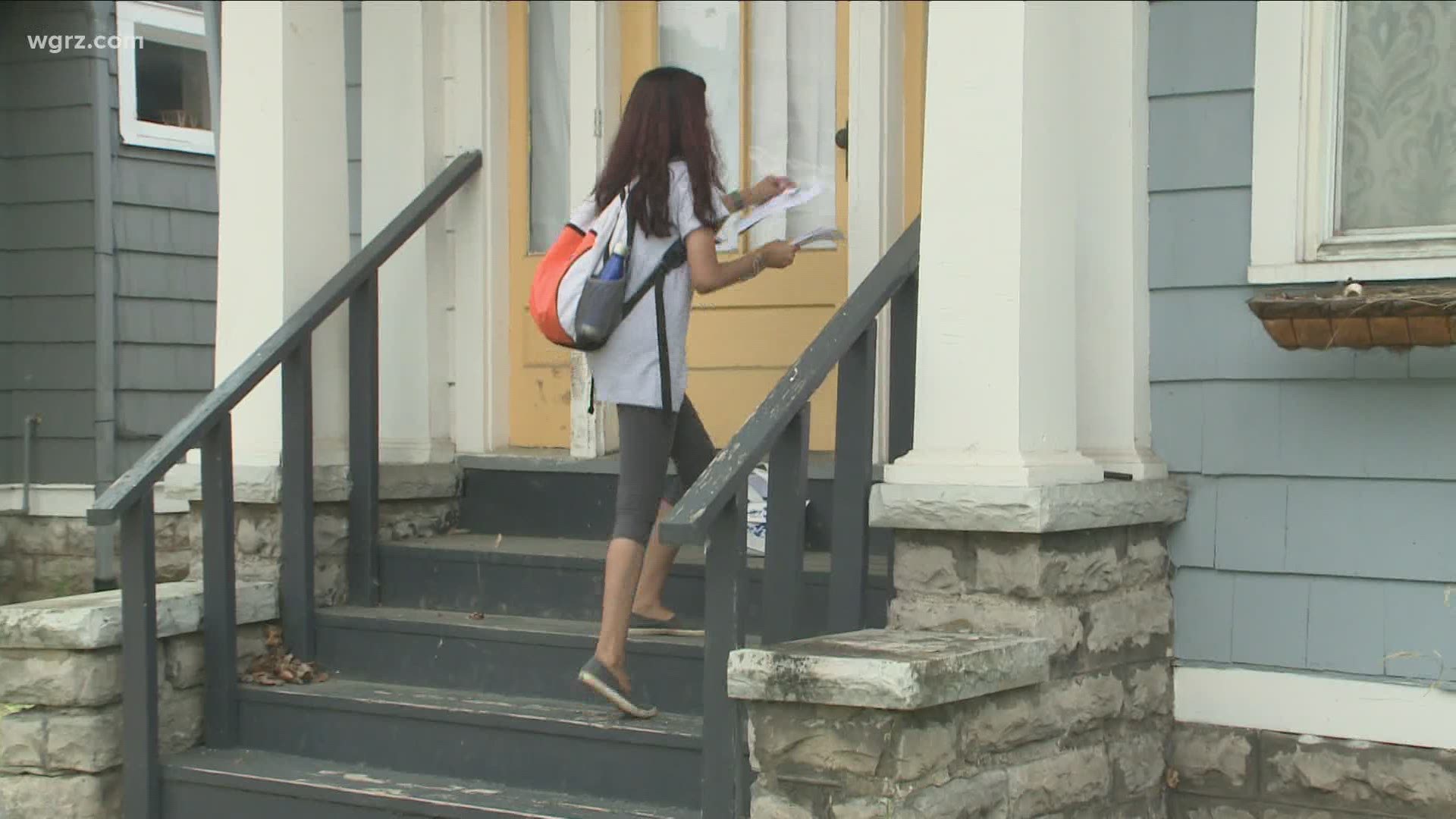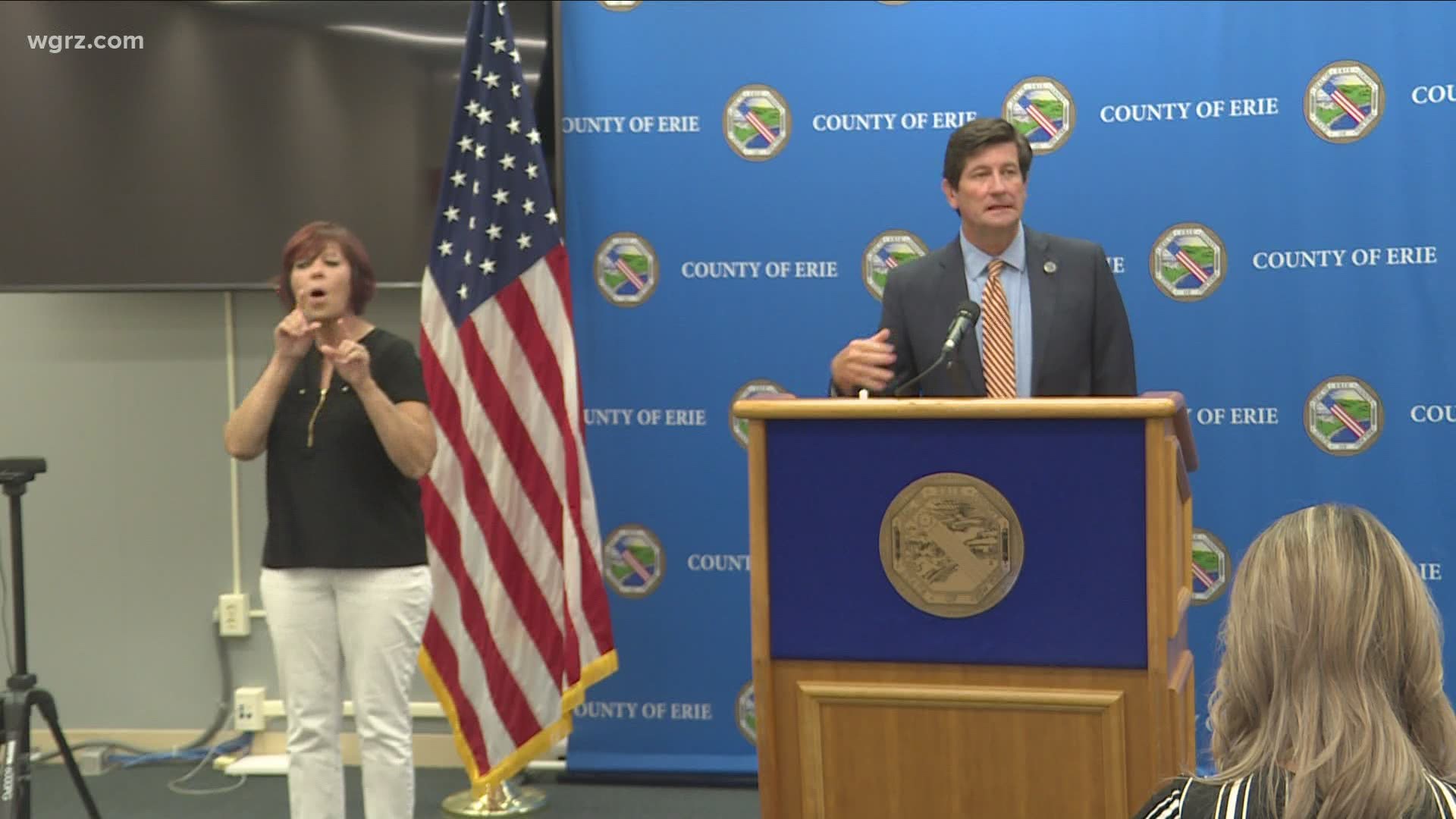BUFFALO, N.Y. — Two students at the University at Buffalo Jacobs School of Medicine and Biomedical Sciences have tested positive for COVID-19.
The school says students and staff were notified on Friday of the first case. The second case was reported on Tuesday. Students and staff were informed and told to monitor for symptoms.
"Based on the timing of when these students were last in our building at 955 Main Street, we believe that there was limited exposure to others in the building,” David A. Milling, MD, senior associate dean for student and academic affairs, and Alan J. Lesse, MD, senior associate dean for medical curriculum, wrote in the email.
Both students are self-isolating in their own homes. The medical building has been cleaned by the custodial staff.
The school says they were also notified by the Erie County Department of Health of a staff member who tested positive for COVID-19. That employee does not work in the medical school and has been working remotely. Officials say the person did come to the campus briefly, but had little interaction.
The University at Buffalo has a COVID-19 dashboard on their website for more information: https://www.buffalo.edu/coronavirus/dashboard.html
Human coronaviruses are usually spread through...
- The air by coughing or sneezing
- Close personal contact, such as touching or shaking hands
- Touching an object or surface with the virus on it, then touching your mouth, nose or eyes before washing your hands.
Help stop the spread of coronavirus
- Stay home when you are sick.
- Eat and sleep separately from your family members
- Use different utensils and dishes
- Cover your cough or sneeze with your arm, hot your hand.
- If you use a tissue, throw it in the trash.
Lower your risk
- Wash your hands often with soap and water for at least 20 seconds. If soap and water are not available, use an alcohol-based hand sanitizer.
- Avoid touching your eyes, nose, and mouth with unwashed hands.
- Avoid close contact with people who are sick.
- Clean and disinfect frequently touched objects and surfaces.
- If you are 60 or over and have an underlying health condition such as cardiovascular disease, diabetes or respiratory illnesses like asthma or COPD, the World Health Organization advises you to try to avoid crowds or places where you might interact with people who are sick.


